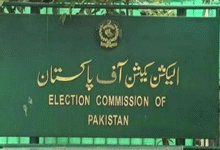Insights into Pakistan’s Film Censorship Revealed

Have you ever wondered who determines which films get screened in Pakistan and which ones don’t?
This question prompted me to exercise my constitutional rights by filing an information request under the Right to Information Act in December 2022.
I submitted a request, commonly known as an RTI request, to the Central Board of Film Censors (CBFC) in Islamabad. I asked them to share a comprehensive list of films reviewed and banned from 2019 to the present day. Additionally, I requested information on cinema houses fined for screening films without CBFC approval.
Moreover, I sought details on fines imposed, current cinema statuses, and a copy of the Standard Operating Procedure (SOP) for film review before screening.
On January 31, 2023, the CBFC sent a letter to the Pakistan Information Commission (PIC), refusing to provide the requested information. They cited exemptions under Section 7, 16(b)(v), and 16(e) of the Right of Access to Information Act, 2017.
The CBFC’s letter stated, “The requested information from partially S.No. 2 to 6 and S.No. 8 to 9 cannot be shared publicly. It is pertinent to mention that the information regarding the above-mentioned serial numbers is confidential due to potential threats to the department, as CBFC has received threats on numerous occasions.”
Interestingly, Section 16(e) of the Act pertains to defense or the security of Pakistan. It allows information to be exempted if its disclosure could seriously prejudice Pakistan’s defense, security, or the effectiveness of its armed forces or law enforcement agencies.
Despite facing hurdles, after persistent appeals to the Pakistan Information Commission over one and a half years, I finally obtained the requested information.
Let me share it with you.
The Central Board of Film Censors comprises 20 members, including the Chairman and Vice Chairman of CBFC, two Brigadier-level officers of the Pakistan Army, representatives from ISI and ISPR Directorates, the Director/PSO to the Director-General of the Intelligence Bureau, the Inspector General of Police, Islamabad, Mr. Muhammad Usman, Assistant Chief, Ministry of Information and Broadcasting, Mr. Taiq Mehmood Khan, Former Chairman, CDA, Former Director NAB and Dr. Arslan Hyder, Director, Ministry of National Health Services.
Civil society members include Hamid Mir, Senior Journalist, Ms. Safina Syma Khar, Ex-Parliamentarian, Hafiz Tahir Khalid, Senior Journalist, Mr. Shuja ur Rehman Malik, Social Activist, Muhammad Zareef Raja, Mr. Hasan Abbasi, Banker, Mr. Farooq Hasan, Banker, Nouman Ali Khan, Social Activist and Mr. Nadeem Akhtar, Legal Expert.
The list of films declared unsuitable or banned for screening in Pakistan from 2019 to 2022 includes “Bilal” (UAE- Dubbed in Urdu), “The Gandhi Murder” (FR-English), “Primos” (F.M), “Sheenogai” (Pashto, Local), “Javed Iqbal: The Untold Story of A Serial Killer” (Local, Urdu), “Jackass Forever” (English), “I’ll Meet You There” (Urdu, Local), “Shahr-e-Sarab” (The Mirage City) (Local), “Jatt Brothers” (Punjabi), and “I am the Artist” (Urdu, Local).






